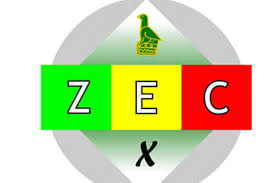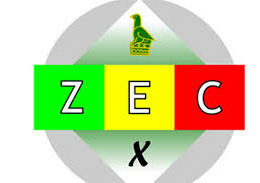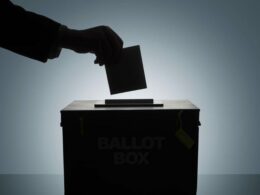Each candidate in an election, according to the Electoral Act, may appoint a person to be his or her chief election agent and such appointment must be made before, on or after nomination day but not later than seven days before polling day or the first polling day.
The law requires that the candidate notifies the constituency elections officer of the full names and address of his or her chief elections officer and the constituency elections officer must then give public notice giving details of the chief elections officer so appointed.
According to the Electoral Act, if a candidate fails to give notice of the appointment of a chief elections agent, the candidate will be deemed to be his or her own chief elections agent.
Not later than three days before the polling day or first polling day, a chief election agent may appoint one or more persons, not exceeding such number as may be prescribed, to be his or her election agents and must forthwith notify in writing the full names and address of every election agent so appointed to the constituency elections officer.
Roles and what is generally expected of election agents
· Election agents observe polls on behalf of contesting candidates
· They are authorised to attend at the counting or collating of votes at a polling station or constituency centre.
· According to Section 83 of the Electoral Act, every chief election agent, election agent and observer appointed or accredited for the purpose of any election shall be bound by the code of conduct set out in the First Schedule.[Subsection amended by Act 17 of 2007]
· Any chief election agent, election agent or observer who contravenes any provision of the code of conduct set out in the First Schedule shall be guilty of an offence and liable to a fine not exceeding level fourteen or to imprisonment for a period not exceeding two years or to both such fine and such imprisonment. [Subsection amended by Act 17 of 2007]
· Violation of the code of conduct can result in the election agent being excluded from observing the polls.
· Section 84 of the Electoral Act reads: “For the avoidance of doubt it is declared that the failure by any person (other than an electoral officer) entitled in terms of paragraph (b) of subsection (1) of section fifty-five to be present on time
(1a) at the counting and recording of the total number of ballot papers received at a polling station in terms of section 54A; or [Paragraph inserted by Act 17 of 2007]
(a) at the sealing or opening of the ballot boxes in terms of subsection (4) of section fifty-four; or
(b) at the sealing of the ballot boxes in terms of paragraph (a) of section sixty-one or of the packets referred to in paragraph (b) of that section; or (c) at the counting of votes in terms of section sixty-two; shall not prevent the electoral officer concerned from proceeding in the absence of any such person.”
Code of conduct for chief election agents, election agents and observers According to the Electoral Act: First schedule (Sections 13(4)(a), 14(6)(c) and 83(1))
1. A chief election agent, election agent or observer shall obey every lawful instruction of an electoral officer.
2. A chief election agent, election agent observer shall not hinder or obstruct an electoral officer in the lawful conduct of his or her functions.
3. No observer shall wear any apparel sporting a prohibited symbol or apparel indicating any affiliation with a candidate or political party participating in the poll, nor in any other way canvass for any candidate or political party while observing the poll.
4. An observer shall at all times within a polling station, constituency centre or ward or council centre wear a badge or label bearing proof that he or she has been duly accredited in terms of this Act.
5. A chief election agent or election agent shall not wear any apparel sporting a prohibited symbol or indicating any affiliation with a candidate or political party participating in the poll, but may wear such identification label or badge as is sufficient to indicate the candidate or political party he or she represents.
6. A chief election agent or election agent shall not, within or within two hundred metres of a polling station, constituency centre or ward or council centre, canvass for any candidate or political party.
7. A chief election agent, election agent or observer shall not obstruct or accost any voter at a polling station or on his or her way thereto or therefrom, nor interview any voter at a polling station. 8. A chief election agent, election agent or observer shall not do anything which compromises the secrecy of the ballot.
9. If a chief election agent or election agent considers that there has been any irregularity in the conduct of the poll or the counting of the votes, the chief election agent or election agent shall not bring such irregularity or apparent irregularity to the attention of any electoral officer other than the presiding officer or constituency elections officer.
10. If an observer considers that there has been any irregularity in the conduct of the poll or the counting of the votes, the observer shall bring such irregularity or apparent irregularity to the attention of the presiding officer or constituency elections officer at the polling station, constituency centre or ward or council centre concerned.
11. Not more than one election agent for any candidate shall be permitted to be in a polling station at any time.
12. A chief election agent or election agent may not be present at a polling station, constituency centre or ward or council centre located in a constituency or ward or council area for which his or her candidate was not nominated.
13. In the case of an election to the office of President
(a) a candidate’s provincial or constituency chief election agents shall not be permitted to enter any polling station, nor witness the verification of statements of presiding officers or the counting of votes, outside the province or constituency, as the case may be, for which they were appointed;
(b) not more than the prescribed number of the candidate’s election agents may be present at the counting of votes.
14. A chief election agent, election agent or observer shall, generally, conduct himself or herself in a manner conducive to the peaceful, dignified and orderly conduct of the poll.








